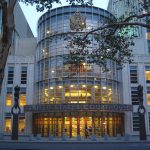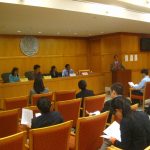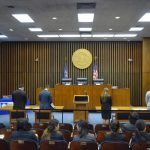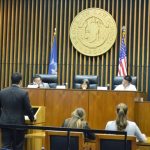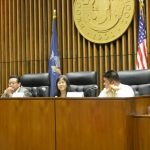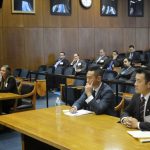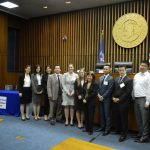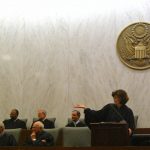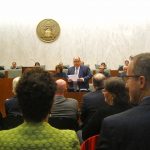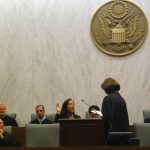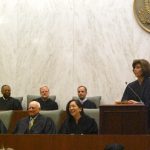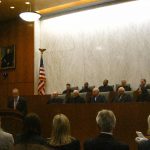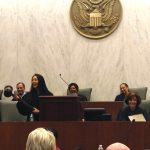PUBLIC NOTICE
FEDERAL MAGISTRATE JUDGE VACANCY
There is one (1) full-time United States Magistrate Judge position vacancy at the Long Island Courthouse of the Eastern District of New York located at 100 Federal Plaza, Central Islip, NY 11722 effective August 5, 2014. The duties of the position are demanding and wide-ranging, and will include: (1) conduct of preliminary proceedings in criminal cases; (2) trial and disposition of misdemeanor cases; (3) conduct of various pretrial matters and evidentiary proceedings on delegation from the judges of the district court; (4) trial and disposition of civil cases upon consent of the litigants; and (5) assignment of additional duties not inconsistent with the Constitution and the laws of the United States.
The basic jurisdiction of a United States Magistrate Judge is specified in 28 U.S.C., section 636. To be qualified for appointment, an applicant must: (a) be a member in good standing of the bar of the highest court of a state, the District of Columbia, the Commonwealth of Puerto Rico, or the U.S. Virgin Islands for at least five years; (b) have been engaged in the active practice of law for a period of at least five years (with some substitutions authorized); © be competent to perform all the duties of the office, of good moral character, emotionally stable and mature, committed to equal justice under the law, in good health, patient and courteous, and capable of deliberation and decisiveness; (d) be less than 70 years old; and (e) not be related to a judge of the district court. An applicant should have federal court experience and be knowledgeable in federal civil and criminal practices and procedures.
A Merit Selection Panel composed of attorneys and other residents of the district will review all applications and recommend in confidence to the judges of the district court the five persons whom it considers best qualified. The Court will make the appointment following an FBI and IRS investigation of the appointees. An affirmative effort will be made to give due consideration to all qualified candidates, including women and members of minority groups. The salary of each position is now $183,172 per annum. The term of office is eight years.
Please note that the application form can be accessed on-line at the district’s website: www.nyed.uscourts.gov. Application forms also may be obtained from the Clerk of the Court at 225 Cadman Plaza East, Brooklyn, New York 11201, (718) 613-2270. Applications must be personally prepared by potential nominees and must be received no later than September 19, 2014. A disk in Word or pdf and seventeen (17) copies of the completed application must be mailed or delivered to the office of the Clerk of Court at the above address.


